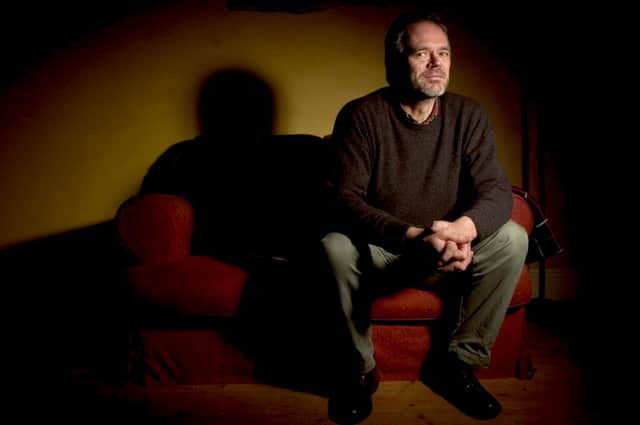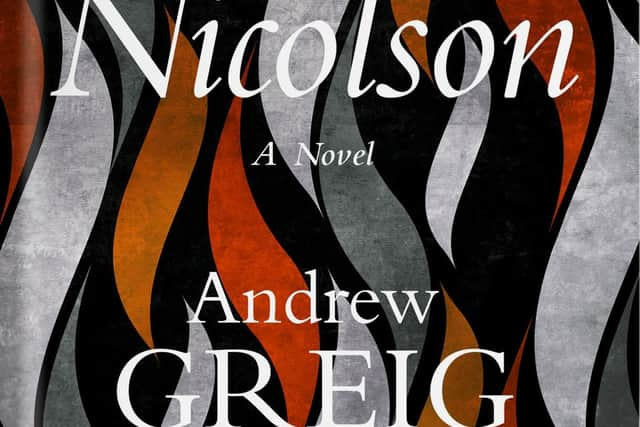Rose Nicolson Part 3: The Sonsie Quine takes on a stormy Firth of Forth


The Sonsie Quine rolled into the lee of Inchcolm Island and the seas calmed somewhat. The Abbey, one of the oldest in the country, had been cleansed with all the others in the tumultuous year leading up to my birth. The stout church was roofless, and birds passed in and out the vacant windows. The cloister and chapter house appeared uninhabited but more or less intact. The stone was blackened around the windows of the scriptorium, which must have burned well.
Preacher Knox’s sermon at Burntisland in the autumn of 1559, against Idolatry and the distractions of Beauty, had had its customary effect. Anything of high value left in the Abbey would have gone to one of the Lords of the Congregation; the less fancy items to the lairds of Fife; the practical items of wood and dressed stone to the Burghs.
Advertisement
Hide AdAdvertisement
Hide AdA couple of monks, wild and unshaven, emerged from a rough shelter by the shore and stared as our ship rolled by. By their tattered robes, they had once been Augustinians. They looked as feral as their few sheep, wild as their vegetable garden.


The Reform had decreed that all monks and friars convert, or leave for whatever countries would have them. They might live on within the ruins, but hold no Masses, receive no income, have no books or novices, give no Sacrament. A merciful settlement, some said.
The mate told me that due to a bittie blaw, we would no longer be picking up timber in Limekilns, but instead crossing direct to Fife. We sailed out of the lee of Inchcolm, and the wind and swell rose to new extremes. I clung to the rail and the rigging as we tossed and plunged but I was sick no more. As we tacked further out into the Firth I surrendered myself to God’s Will.
I became aware of a new urgency. The captain was on deck, following the mate’s arm pointing out towards the Bass Rock. The sea had changed. The waters ahead were green, white, dark, leaden, all scurrying and shifting, strangely lit. Then the full storm hit us. The great trees of the masts bent and groaned. Our vessel slewed, leaned over so far the upper yards snagged in the running wave.
Advertisement
Hide AdAdvertisement
Hide AdThe mate screamed above the wind at the two hands as they struggled to further reef the sails. They lost control of the mainsail, which flew wide, smashed into the jib rigging and the boom cracked. A hand thwacked my back. It was our captain – a Dutchman my mother had said. A year earlier she had advanced him credit to buy a share in the Sonsie Quine, thus my free passage. His face was red with drink and weather, but he seemed sturdy and untroubled amid mayhem.
‘Help take the wheel!’ he shouted in my ear. ‘We need a man free.’
I gaped at him. I was practically a child.
‘On ye go! Hold on to me!’
I clung to his broad leather belt, felt his strong arm round my shoulder as we zig-zagged across the tilting deck and slammed into the wheel. A rope lashed me to the wheel-stem.
The smaller steersman adjusted my fists round the spokes, then reeled away.
‘Watch me, laddie!’ the steersman at my side cried.
Advertisement
Hide AdAdvertisement
Hide AdThe captain and the hand had gone to fight with the rigging and straining sails. Tipping into a huge on-coming wave, the ship slewed over, water rushing across her decks, those spars caught in the passing wave strained and snapped. The whole boat groaned as though slain.
The steersman bared his teeth, gave a great cry and forced the juddering wheel over as I too lifted with all my strength. The wheel and its stem were shaking so hard I thought they would split. We forced again, the bow came round, our ship shook free of that devouring wave. Then we were down, down in the abyss, veering into the next roller.
We took it straight on, rose up and up. I could see over the white and black sea, all the way to the Berwick Law and those green fields we would never reach.
My lofty resignation of minutes before was succeeded by black dread at being taken by the sea, sinking down into nothingness or worse. What if God were not a Protestant? What
if He were? I was damned either way.
Advertisement
Hide AdAdvertisement
Hide AdWe spun the wheel as the bow dropped and we slid down off that great wave. A bawling in my lug. I looked at the steersman, his face
streaming water, and he grinned his few yellowed fangs.
The Lord’s my shepherd, I shall not want! He makes me down to lie!
We bawled it out together, the old Psalm in new language, vernacular and raw, as we rose up, plummeted and rose again. The wheel shook and strained against my hands, but it held.
At last the mainsail was saved and reefed, then we tacked hard over and sailed by the jib for St Serf ’s castellated tower at Dysart. My heart was high, my head rang clear as a bell. I was drookit, clothes ruined, but have never felt so light and fearless as that afternoon we skidded and furrowed our way across the tumult.
Advertisement
Hide AdAdvertisement
Hide AdSome would say that our cry was heard and answered from Above. That may be, though more devout men than I die each year in the unruly Forth. All I know is that we heard it, our hearts heard it and were made strong. That day I learned the power of sung words.
Tomorrow: Who is the boy with the long red hair?
A message from the Editor:
Thank you for reading this article. We're more reliant on your support than ever as the shift in consumer habits brought about by coronavirus impacts our advertisers.
If you haven't already, please consider supporting our trusted, fact-checked journalism by taking out a digital subscription.
Comment Guidelines
National World encourages reader discussion on our stories. User feedback, insights and back-and-forth exchanges add a rich layer of context to reporting. Please review our Community Guidelines before commenting.